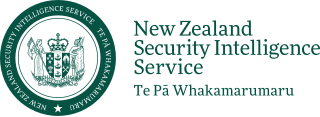
The New Zealand Security Intelligence Service (NZSIS) is New Zealand's primary national intelligence agency. It is responsible for providing information and advising on matters including national security and foreign intelligence. It is headquartered in Wellington and overseen by a Director-General, the Minister of New Zealand Security Intelligence Service, and the parliamentary intelligence and security committee; independent oversight is provided by the Inspector-General of Intelligence and Security.

Right-wing terrorism, hard right terrorism, extreme right terrorism or far-right terrorism is terrorism that is motivated by a variety of different right-wing and far-right ideologies. It can be motivated by Ultranationalism, neo-Nazism, anti-communism, neo-fascism, ecofascism, ethnonationalism, religious nationalism, anti-immigration, anti-semitism, anti-government sentiment, patriot movements, sovereign citizen beliefs, and occasionally, it can be motivated by opposition to abortion, tax resistance, and homophobia. Modern right-wing terrorism largely emerged in Western Europe in the 1970s, and after the Revolutions of 1989 and the dissolution of the Soviet Union in 1991, it emerged in Eastern Europe and Russia.
New Zealand has experienced few terrorist incidents in its short history and the threat is generally regarded as very low. However, the Security Intelligence Service (SIS) has warned against complacency. This article serves as a list and compilation of past acts of terrorism, attempts of terrorism, and other such items pertaining to terrorist activities within New Zealand. Significant acts of terrorism include the bombing of the Rainbow Warrior in 1985, an act of state-sponsored terrorism by France, and the Christchurch mosque shootings in 2019, a far-right attack which resulted in 51 deaths and 40 injuries.
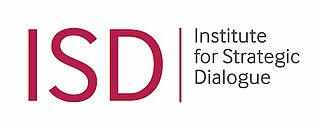
The Institute for Strategic Dialogue (ISD) is a political advocacy organization founded in 2006 by Sasha Havlicek and George Weidenfeld and headquartered in London, United Kingdom.
The Special Tactics Group (STG) is the full-time police tactical group of the New Zealand Police. The STG, originally named the Anti-Terrorist Squad (ATS), was established to respond to high-risk situations which are beyond the scope or capacity of everyday policing. STG officers directly support operational police in incidents, such as sieges, with specialist tactical, negotiation, intelligence, and command support services.

France–New Zealand relations are the international relations between New Zealand and France. Relations between France and New Zealand have been rocky at times, but more recently have become much closer. Bilateral relations have been generally good since World War I and World War II, with both countries working closely during the conflicts, but the relationship was severely jeopardised by the sinking of the Rainbow Warrior in Auckland on 10 July 1985 by French Direction Générale de la Sécurité Extérieure (DGSE) agents.

New Zealand–Russia relations are the bilateral foreign relations between New Zealand and the Russian Federation. New Zealand has an embassy in Moscow and an honorary consulate in Vladivostok. Russia has an embassy in Wellington. Both countries are members of APEC. Due to the 2022 Russian invasion of Ukraine, relations became very tense after New Zealand imposed sanctions against Russia. Russia placed New Zealand on a list of "unfriendly countries", along with Taiwan, South Korea, Singapore, Japan, the United States, European Union members, NATO members, Australia, Switzerland, Micronesia and Ukraine.

Dame Jacinda Kate Laurell Ardern is a New Zealand former politician who served as the 40th prime minister of New Zealand and leader of the Labour Party from 2017 to 2023. She was a Labour member of Parliament (MP) as a list MP from 2008 to 2017, and for Mount Albert from 2017 to 2023.
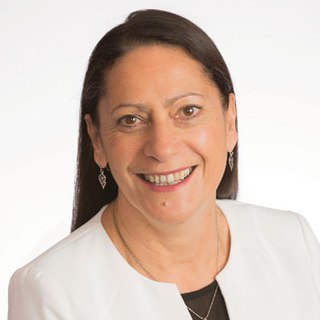
Munokoa Poto Williams is a New Zealand Labour Party politician and a member of Parliament. She was elected in a 2013 by-election and served as Minister of Conservation and Minister for Disability Issues in the Sixth Labour Government.

Violent extremism is a form of extremism that condones and enacts violence with ideological or deliberate intent, such as religious or political violence. Violent extremist views often conflate with religious and political violence, and can manifest in connection with a range of issues, including politics, religion, and gender relations.
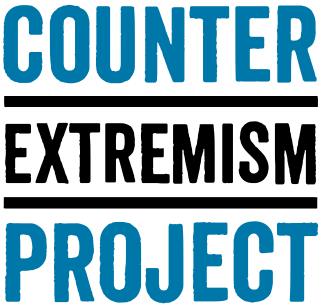
The Counter Extremism Project (CEP) is a non-profit non-governmental organization that combats extremist groups "by pressuring financial support networks, countering the narrative of extremists and their online recruitment, and advocating for strong laws, policies and regulations".
Online youth radicalization is the action in which a young individual or a group of people come to adopt increasingly extreme political, social, or religious ideals and aspirations that reject, or undermine the status quo or undermine contemporary ideas and expressions of a state, which they may or may not reside in. Online youth radicalization can be both violent or non-violent.

The Christchurch mosque shootings were two consecutive mass shootings on two mosques in Christchurch, New Zealand on 15 March 2019. They were committed by Brenton Tarrant who entered both mosques during Friday prayer, firstly at the Al Noor Mosque at 1:40 p.m. and later at the Linwood Islamic Centre at 1:52 p.m.

Joanna Kidman is a Māori sociology academic of Ngāti Maniapoto and Ngāti Raukawa descent and as of 2019 is a full professor at Victoria University of Wellington. In 2024 she was elected as a Fellow of the Royal Society Te Apārangi.
Suhayra Aden is a New Zealand woman who travelled to Syria in 2014. It is alleged that while in Syria she joined the Islamic State of Iraq and the Levant (ISIL) where she married two Swedish fighters and had three children. In February 2021, she was detained by Turkish authorities while trying to enter the country with her two surviving children. Turkey subsequently dropped charges against Aden and began proceedings to deport her.
Far-right terrorism in Australia refers to far-right ideologically influenced terrorism on Australian soil. Far-right extremist groups have existed in Australia since the early 20th century, however the intensity of terrorist activities have oscillated until the present time. A surge of neo-Nazism based terrorism occurred in Australia during the 1960's and 70s, carried out primarily by members of the Ustaše organisation. However in the 21st century, a rise in jihadism, the White genocide conspiracy theory and after affects of the COVID-19 pandemic have fuelled far-right terrorism in Australia. Both the Australian Security Intelligence Organisation (ASIO) and the Australian Federal Police (AFP) are responsible for responding to far-right terrorist threats in Australia.
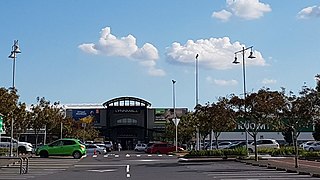
On 3 September 2021 at 14:40 NZST, eight people were injured in a mass stabbing at the LynnMall Countdown supermarket in New Lynn, Auckland, New Zealand. The attacker, Ahamed Samsudeen, was being followed by police officers, who intervened during the attack and shot and killed him after he charged the officers. He was pronounced dead at the scene. The incident was treated as terrorism and was "ISIS-inspired" according to Prime Minister Jacinda Ardern. It was the second stabbing in less than four months to occur at a Countdown supermarket, the first being in Dunedin, and the first terrorist attack in New Zealand since the Christchurch mosque shootings in 2019.

New Zealand–Ukraine relations are the foreign relations between New Zealand and Ukraine. Following the collapse of the Soviet Union, New Zealand formally established diplomatic relations with Ukraine in March 1992. The two countries subsequently expanded diplomatic contacts and economic relations over the next three decades. Following the 2022 Russian invasion of Ukraine, New Zealand supported Ukraine by condemning Russia's actions and providing diplomatic and military assistance.

Terrorgram refers to a decentralized network of Telegram channels and accounts that subscribe to or promote militant accelerationism. Terrorgram channels are neo-fascist in ideology, and regularly share instructions and manuals on how to carry out acts of racially-motivated violence and anti-government terrorism. Terrorgram is a key communications forum for individuals and networks attached to Atomwaffen Division, The Base, and other explicit militant accelerationist groups.














